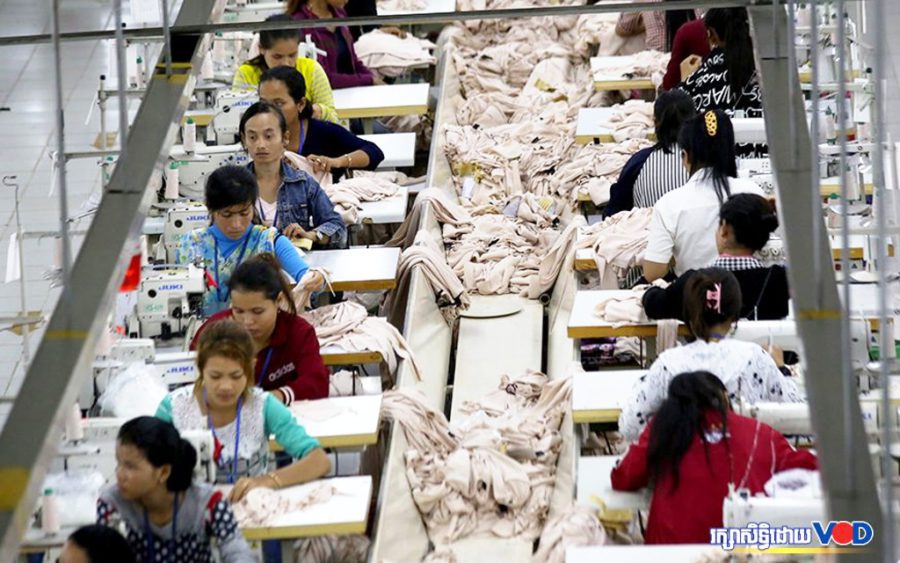The National Bank of Cambodia said the country will likely see the economy grow again by about 7 percent this year, while noting the risks of a possible contraction of the Chinese economy, potential suspension of duty-free trade with the E.U., and high levels of debt in the property sector.
The central bank’s macroeconomic outlook, released on Thursday, followed a report released by the International Monetary Fund suggesting long-term job losses of 6 percent in the garment sector and an immediate 3-point hit in the country’s annual GDP growth if the E.U.’s “Everything But Arms” (EBA) deal is rescinded.
The E.U. threatened to withdraw the agreement over human rights concerns and is expected to render a decision next month.
The National Bank said the main risks to the Cambodian economy were “the possibility of a sharp decline” in the Chinese economy. It attributed this to Cambodia’s “close connection” with its trading partner. Other major risks, the report said, are losing the EBA, high growth in lending in the construction sector — which could increase the supply of real estate “beyond needs” — and rising debt financing of property purchases.
“However, economic growth for 2020 is expected to achieve around 7 percent with an inflation level of about 2.3 percent,” it said.
Brexit could dull the blow of an EBA loss, while the government had made reforms that are friendly for investors, and the global economy was expected to rebound, it added.
However, a report published by the International Monetary Fund on December 26 predicted significant losses if the E.U. suspends Cambodia’s access to the EBA.
The E.U. embarked on a review of the scheme in February last year over concerns over political and human rights, citing the dissolution of the main opposition CNRP and arrest of its president, Kem Sokha, in 2017. Sokha was released from de facto house arrest in November but remains banned from politics, and a treason charge, which could put him in jail for up to 30 years, still hangs over him. His trial date is scheduled for January 15.
The IMF report forecasts a 13 percent drop in exports to the E.U. without duty-free access — or about 5 percent in total exports — leading to a 3 percentage point decline in GDP growth during the first year.
In the long-term, it predicts a permanent decline of textile exports by 10 percent, textile industry output by 7 percent, and textile employment by 6 percent. It notes that the industry currently employs about 750,000 workers, putting the potential job losses at about 45,000.
“A full withdrawal could cause a large decline in exports and GDP growth, reduction in employment and increase in poverty,” the report says, noting that a partial withdrawal would lessen the effects but that the country’s “elevated domestic financial vulnerabilities” could exacerbate them.
(Translated and edited from the original article on VOD Khmer)













